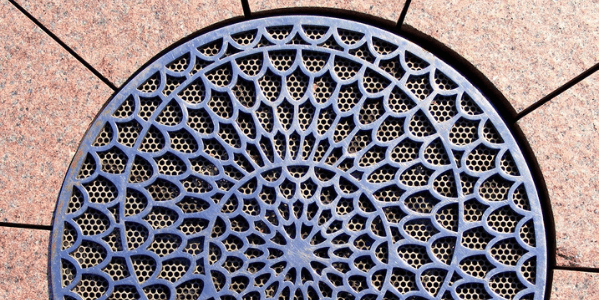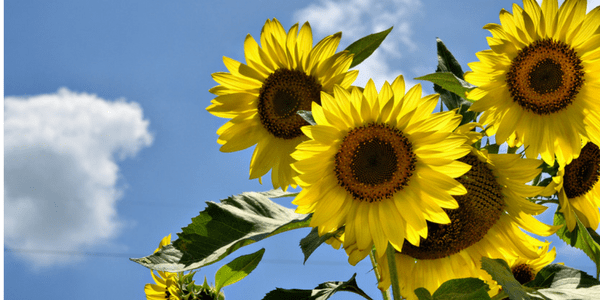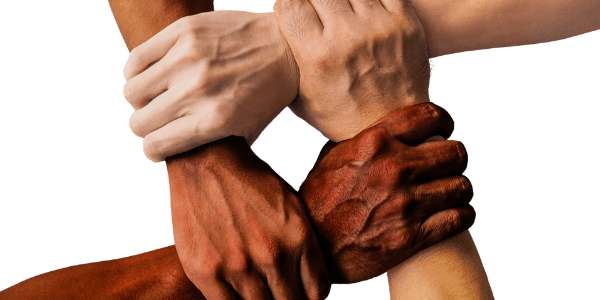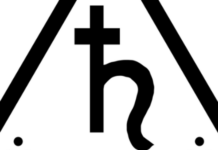
Recently, I did a number of informal surveys and interviews with prominent leaders, volunteers, teachers, and organizers, mostly localized within the Ontario region, but practicing from a wide variety of modalities. I am curious about the way in which leaders operate within our communities and the ways in which the idea of a “clergy” might come about in our very loose and organic groups. In the hopes that I may provide some insight into the future of the community between witches, I would like to share some of the insights I have gleaned from speaking to these powerful, magical women.
1. In the beginning, we often walk alone.
When we are first starting out in the path, we may connect with a teacher of this path or that, we might take classes and workshops but, often, there is this sense that we are called to learn and there isn’t really one single person who is willing (or able) to lead us. We are left trying to locate allies, to practice when and where we can and to try to build upon our experiences until we have a practice of our own. It is this journey where we begin to build the skills and competencies that will carry us along the way for the rest of our lives. It is in this journey, that we begin to build the networks that will begin to form into our communities.
Related: Creating your altar: A beginner’s guide, by Donyae Coles
Related: Working with multiple pantheons: A beginner’s guide, by Donyae Coles
2. We can ask others to pull us up, but not to carry us.
A vitally important part of our development as practitioners is to delve into our own work. We learn from those around us and are enriched by their work, but in order for communities to truly thrive and grow, we need to be able to bring our own resources to the table. That’s not to say that we can’t falter or ask for support from those around us, we just can’t ask or expect them to carry us. We need to move forward under our own steam.
There may be times when we can’t walk on our own, and a beautiful thing about humanity is that we have people who will offer up help to us in our time of need, but as we heal and as we become stronger we are increasingly expected to not only pull our own weight but to become strong enough to carry others when they falter. The resiliency of a community comes from our ability to be strong for one another in whatever way we are able.
I may not ever be able to physically carry another person, but I can shoulder their emotional pain for a time, I can help them through a crisis, or give advice. I develop my resources and put them in service of my loved ones. It is the gift that I offer to the collective, the gift of myself.
Related: Building community: Approaching WITCHfest North 2018, by Monica Bodirsky
Related: Creativity, community, and self-care at WomynSpirit Festival 2015, by Jenna Danchuk
3. Our initiations may come as invitations.
There isn’t always this glowing moment where we wander in the mountain and find a burning bush, thinking, “I guess I’m a prophet now!” Rather, at some point, it might just seem that there isn’t anyone else around who has the energy to lead that group or organize that class and all of a sudden you might think to yourself, could I do that?
Stepping into the role of leadership is sometimes more like being a facilitator than a leader. It might have more to do with being able to locate a room than being able to impart divine wisdom onto others. Being a leader in the pagan community has more to do with showing up than it does with how deeply spiritual you are.
Outside of traditional degree systems, we don’t often have the privilege of that watershed moment of knowing that we are now worthy. Oftentimes, we need to do the work even though we don’t feel worthy and just hope that it starts to feel less strange.
Related: Are magical initiations necessary?, by Psyche
Related: Why initiation matters, by Vincent Ongkowidjojo
4. Compensation is complicated.
It’s not easy to figure out how to properly compensate ourselves and others for the work they are doing. In the first place, sometimes the work we do is totally invisible. Sometimes it’s behind the scenes emotional labour that’s helping to keep our communities together, resolving conflicts, solving problems. The idea of compensation can really depend on what we are giving and what we are getting in return.
So much of the work of the community is a reward in and of itself. Building community has the very lucrative reward of having community! But, of course, community comes with its own whole list of complications that go hand in hand with all of the good stuff and that can be difficult to handle, especially when more of the heavy lifting falls onto the shoulders of one person or a small number of people.
We need to try to take stock of the contributions of those in our communities as well as communicating what it is that we are doing so that we don’t become linchpin. If we can’t step back from our work, our communities suffer. So, we need to make sure that we are getting what we need, whatever that may be.
Related: Challenges and rewards of leadership, by Courtney Weber
Related: #HavamalWitches: We are the witches the Havamal warns you about, by Jade Pichette

5. Care is critical.
Whatever it is that we are doing, it’s important to enter into it with a sense of care. Compassion, care, and love are at the centre of the work we are doing. We are trying to lift people up, to lift ourselves up in the community of others. We are doing the work of love and as such, it becomes critically important to understand how to do the work of love in our communities.
How do we weave our webs strong enough to act as real safety nets for each other? The deepening of our community bonds is affected by the practice of love and it is this magick that ties us together.
6. You’ve got to give to get.
A large part of the gift we receive from our communities comes from the time and energy we invest in those communities. You won’t receive as much from the people around you unless you are willing to invest yourself into their wellbeing. Part of the reason for nurturing communities is essentially selfish in nature. We want and need to be surrounded by people who are flourishing. We don’t do as well when our environments are stingy, cold, and cruel. By giving of ourselves, freely and without expecting a return, we feed our communities who (ideally) feed us in return. If we all act as generous custodians, we have a deep well of resources to tap into when we are down, have less energy, and need support.
Related: On Pagan clergy: The labour of connection, by Chrysanthemum White Alder
7. No one else can keep our fires burning.
When working in community, one thing that can easily become neglected as we answer the call to care, is we neglect ourselves. It’s important to remember that every member of a community is important and that includes us! We need to take care of our own health, energy, and wellbeing if we are going to be able to be present and accountable to others. This means that we need to step back when things become too much, to ground and process. It’s vitally important that each member of a community strive to maintain balance within themselves because when we don’t take care of ourselves, it can reverberate throughout our networks.
Related: Trancework in groups: Accessing mutual imagination, by Chrysanthemum White Alder

8. Strength is contagious.
Being a part of a community means that we get to spend time with amazing people who are making the world a better place by being in it. Spending time with people who inspire us allows us to summon from within ourselves the resources to be strong. Being able to be in the company of crones, who have made it through an entire lifetime of experiences and struggles can lend us an experiential sense of the gravity of time. Being near children allows us to experience what it feels like to be timeless, to have every moment of our lives ahead of us.
Our community allows us access to life-experiences beyond our own, of people overcoming adversity in ways that we couldn’t have imagined. We can reach out to our communities to help ourselves through the unique struggles of our own lives and just having access to a network of creative magical beings gives us access to strength beyond our mere means. We are made stronger by each other, by our collective inheritance, but the sheer will of life that expresses itself through our hands. We are made mighty by the way we work together.
Related: Black witch resources: Getting started, by Donyae Coles
Related: Pagan heritage: Connecting to your roots and finding common ground, by Emma Kathryn
9. Death and decay are a part of the cycle.
One of the things that I notice about my own groups is their tendency to wax and wane. Some working groups that I have been a part of have had longer working lives than others for a variety of reasons but the thing common to all of them (thus far) is that they end. It can sometimes seem like a failure when a group of ours stops working or when a group of people loses touch and moves onto different paths. Yet, it’s an important part of our work to accept the various ways that our magick manifests, whether it be in abundance or decay. Decay and death are intrinsically important parts of any cycle and the dissolution of our groups makes way for new organic forms to emerge.
Sometimes, the structure of our working group may have become stagnant, it may not allow for all of the members to grow. I like to think of a working group like a cocoon. It’s a container that allows us to transform and at some point, we need to emerge from that container as our new selves, ready to face the work in a new way. We’ll make another cocoon the next time we need to metamorphose our world, and that cocoon might be very different because we ourselves are different.
Related: When a coven comes to its natural end, by A Gardnerian
10. We are magick, we make can birth entire worlds through our works.
The point I keep coming back to time and time again is that our magick is what makes us able to tease new forms out of spirit into the world of form. We are weavers and whisperers of spells. Our power is to call forth what we need and to manifest it in our lives. This means that we don’t have to worry when our communities fragment. We have the power to draw them back together, we have the power to make them anew as well.
As witches, we are given both power and responsibility. We have the ability to create things of great beauty and when we do, we are given the responsibility to care for them, to nurture them, to watch them grow and, sometimes, to watch them die. The thing that bonds it all together is our connection to the ultimate source of power. There, nothing changes, nothing grows or dies. This is our learning that we do here, the learning of change but underneath it all, we are one. There is no death, no loss, no despair.
Related: Pagan community by Psyche
It’s often the case in modern western societies that the structures we live within are decided and made for us. Thus, we can end up developing a mentality of a tourist, showing up and taking benefit without feeling the call to hold up or add to the structures of our lives. This isn’t because we’re selfish, but rather, (I think) because we haven’t been afforded the opportunity to practice community care, we haven’t been shown the ways in which we can create community for ourselves. More and more, as we do the work, we will be called upon to act as custodians for our community practice. It is up to us to answer the call, to do the work, and to be rewarded by it in turn.
It has been a great privilege reading the words and talking to some powerful witches with several centuries of experience between them. It’s humbling to see their power to create and yet, how humble they are about their place in all of that. After all, as great as we may be as individuals, it is our communities that make us truly amazing and if we can each take up the mantle of responsibility, we can help them to grow stronger and more magnificent still.
Recommended: The Door to Witchcraft: A New Witch’s Guide to History, Traditions, and Modern-Day Spells
Image credit: clairebear83613, Karsun Designs, truthseeker 08







